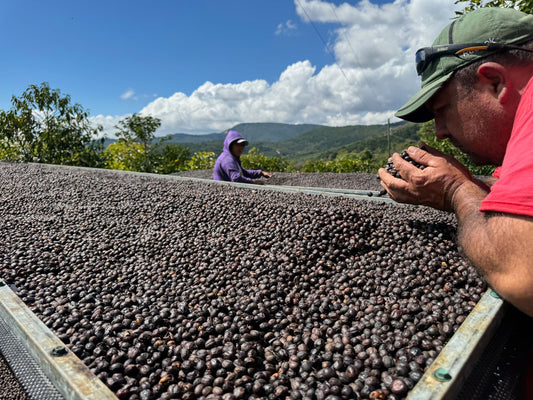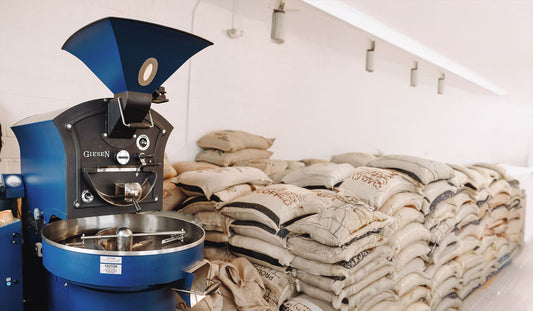Burundi is a lesser-known but equally captivating origin of specialty coffee. Despite the small size, this country's contribution to the coffee industry is far-reaching, offering coffees that astonish with their unique flavor and aromatic profiles. Burundi's coffee sector thrives on the combination of its microclimates, elevation, and the passion of its farmers.
Burundi's coffee is a story of resilience, tradition, and emerging innovation in itself. Here are the key regions that define it’s coffee landscape:
Kayanza Region
Geography:
Kayanza Province, located in the northern part of Burundi, is known for its high-altitude coffee farms, which range from 1,800 to over 2,000 meters above sea level. The area is cool and receives consistent rainfall creating an ideal setting for Arabica coffee. The region also benefits from the nutrient-rich soils of the surrounding hills and the Ruvubu River, which are crucial for both irrigation and processing.
Climate Change:
Kayanza also faces challenges from climate change, some of which include altered rainfall patterns and an increased frequency of extreme weather events. Coffee farmers are trying to adapt via implementation of water conservation techniques, and using terracing to prevent soil erosion during extreme weather days. Through education and support from buyers, there's also a growing interest in agroforestry, which includes integrating a variety of trees with coffee plants to preserve microclimates and local biodiversity.
Community & Agriculture Practices:
Coffee farming in Kayanza is also characterized by 1000’s of small family-owned plots. The community is tightly knit, with extensive knowledge-sharing on farming techniques and sustainability practices. Harvesting in these regions is a communal activity, and the local washing stations are central to both coffee processing and social conversations. This region is another example of unity and cooperation required in producing great coffee.
Soil Conservation and Coffee Quality:
The Kayanza’s coffees are known for their bright acidity and sweet berry notes, and the exceptional quality is a direct reflection of the careful soil management practices. Farmers here engage in daily composting, and minimal tillage to maintain soil health.
Ngozi Region
Geography:
Located further north, Ngozi is another significant coffee-producing region in Burundi. With elevations reaching up to 2,050 meters, the area's cool climate and volcanic soil provide a perfect environment for cultivation. The Kanyaru river in this region supports both crop irrigation and processing needs.
Climate Change:
Ngozi's farmers are increasingly facing inconsistent weather patterns, with unpredictable rains and the threat of extended drought periods. To mitigate these impacts, there is a push towards more sustainable water management, and diversifying crops with drought-resistant varietals.
Community & Agriculture Practices:
Similar to Kayanza, coffee cultivation in Ngozi is predominantly small-scale, built around strong community bonds. Family plots are the norm, with knowledge passed down through generations. The importance of communal washing stations is evident here too, acting as hubs for both coffee processing and community engagement.
Soil Conservation and Coffee Quality:
Ngozi's coffee is distinguished by its full body and vibrant acidity, a testament to the fertile volcanic soil of the region. Farmers practice crop rotation and cover cropping to preserve soil fertility and structure, contributing to the sustainability of coffee production and the distinct flavor profiles of their crops.
In Burundi, coffee is a lifeline for the majority of its population. Specialty coffee culture has been an offer of hope and a path to economic stability for this region. For consumers, Burundi's beans are an exquisite experience of a direct product of ancient lands, vibrant communities, and centuries old traditions of this remarkable African country.



